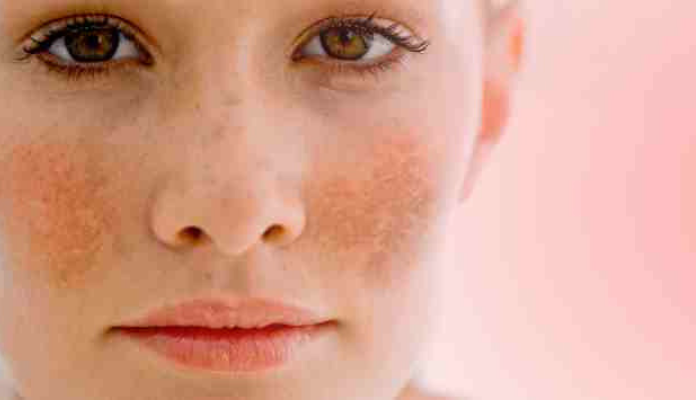Treating Melasma With Homoeopathy
Skin pigmentation disorders are the conditions of the skin whereby skin becomes discoloured, blotchy and dark coloured without a healthy, glowing look. Among the various kinds of pigmentation disorders, melasma is the most common condition for which homoeopaths are consulted. It is a dark irregular brown patchy facial discolouration which is harmless and without any symptoms, but from a cosmetic point of view, it can be a source of distress for the patient.
The pigmentation occurs mostly on the cheeks. forehead, upper lip, chin and nose. Dark patches often appear on both sides of the face in an identical pattern and they can range from tan to deep brown or bluish grey depending on the basic skin predisposition of the patient. Sometimes, these spots are also seen on other sun-exposed areas of the body as well.
Causes
- There are several factors which are responsible for melasma, However, the pigmentation is mainly because of the overproduction of melanin (pigment giving colour to the skin) by the pigment cells melanocytes.
- This condition is more common in women than in men. Women with a brownish skin tone are more prone than those who are naturally fair. It generally starts between the age of 20-40 years.
- Melasma is found to be associated with the female hormones oestrogen and progesterone. Therefore, it is frequently seen in women who take oral contraception and also in those undergoing hormone replacement therapy during menopause.
- Sun exposure is a strong risk factor for melasma. And it is particularly common in tropical climates. 4 Genetic factors are also responsible in predisposed individuals.
- Melasma may also be triggered by a medication called dilantin (phenytoin), an anti-epileptic drug used to control seizures.
- Certain medications (including new targeted therapies for cancer), perfumed or deodorant soaps, toiletries and cosmetics may cause a phototoxic reaction making the skin sensitive to sun exposure that triggers melasma, which may then persist long-term and become chronic.
- Melasma during pregnancy is relatively common. It is called cholasma and the mask of pregnancy.’ The dark patches fade away a few months after the delivery.
- Folic acid deficiency during pregnancy can also lead to the development of melasma.
- Hypothyroidism (low levels of circulating thyroid hormone) is also a cause of melasma.
Homeopathic Approach To Melasma
Homoeopathy considers skin pigmentation to be a general body imbalance. Hence, the treatment is constitutional and specific to the patient. Homeopathy recognises the body as a unified whole of physical as well as psychological components and address the problem from deep within.
Homoeopathic constitutional treatment has very encouraging results for hyperpigmentation without any side effects. Homoeopathic medicines are safe, gentle and natural. They treat the person as a whole. These medicines help in reducing the pigmentation as well as improves the immune system so that skin sensitivity and hormonal imbalance also gets corrected. The result is clear and clean skin.
Homeopathic remedies control the excessive production of melanin and further improves the texture of the skin, reduces the occurrence of new patches and slowly reverts the skin to its normal condition without leaving any blemishes. Homeopathy does not advocate the use of external applications. Patience and counselling are key to successful treatment.
Most commonly used homoeopathic medicines are as follows but should not be used without consulting a qualified homoeopath, first. Sulphur, sepia, kali bromatum. berberis aqua folium. psorinum, natrum mur and bovista.
Prevention Of Melasma With Lifestyle Changes
- Apply sunscreen lotion with SPF 15 (or more depending upon the exposure) at least 30 minutes before going out to prevent the harsh UV rays from affecting the skin.
- Always carry an umbrella and shades.
- Avoid the use of oral contraceptive pills.
- Incorporate some spiritual or meditative exercises in your lifestyle to combat stress.
- Follow a well-balanced and nutritious diet. Consume plenty of coloured fruits and vegetables which have antioxidants that help cleanse the system.
- Avoid use of unnecessary medication and overuse of cosmetic products.
